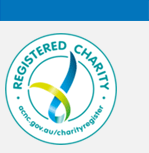Abstract
Fatigue presents as an all-pervasive challenge to anyone who is engaged in shift work. While this affects all nurses, those who work on night duty have been shown to have the greatest risk of fatigue and cognitive impairment thus potentially posing a higher safety risk to themselves, the patients under their care and the wider community as nurses make their way home driving while drowsy.
Despite robust evidence revealing the positive attributes of increased working abilities from napping on night duty, and the overall agreement by nurse managers and organisations, this practice has been slow to be introduced into nursing. Research revealed that 55 per cent of nurse managers felt the greatest barrier to implementation was the lack of policy and supervision around this practice.
This discussion paper challenges nurses, managers and organisations to take note of current research, ACORN guidelines and work health and safety guidelines and start to change thinking and culture by looking at napping on night duty as a ‘safety’ implementation for staff, patients and the wider community. Policies and procedures should be developed and further research should be conducted into length and type of naps and subsequent positive and/or negative effects that may be reported by staff and health care facilities.
Recommended Citation
Gamble, Jennifer and Foran, Paula
(2021)
"Asleep on the job: Can night shift napping provide greater safety for both staff and patients?,"
Journal of Perioperative Nursing: Vol. 34
:
Iss.
1
, Article 6.
Available at: https://doi.org/10.26550/2209-1092.1118
Creative Commons License

This work is licensed under a Creative Commons Attribution 4.0 License.


